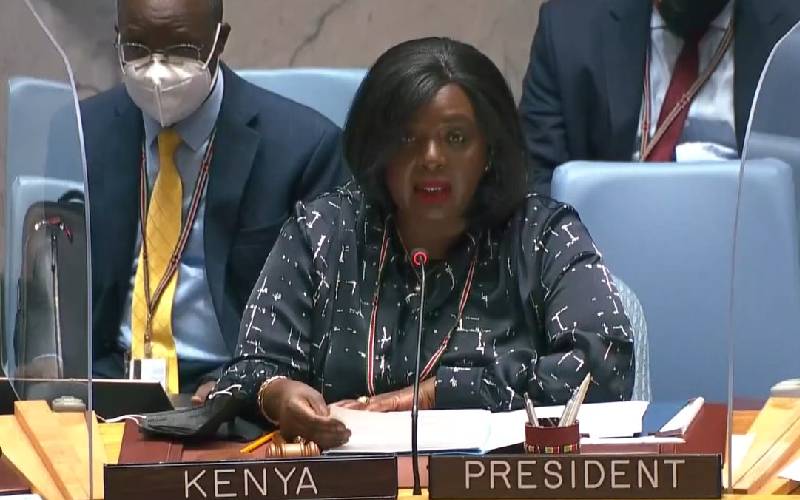×
The Standard e-Paper
Fearless, Trusted News

Foreign Affairs CS Raychelle Omamo when she chaired the high-level ministerial meeting on the security situation in the Great Lakes region at the UN Security Council. [Courtesy]
Kenya has appealed to the United Nations Security Council to move swiftly and address illegal exploitation and trade of natural resources within countries in Africa's Great Lakes Region.